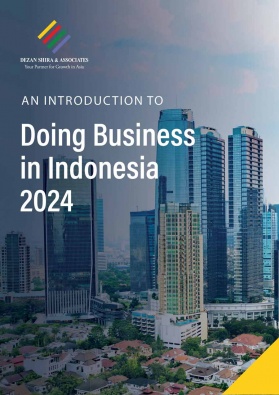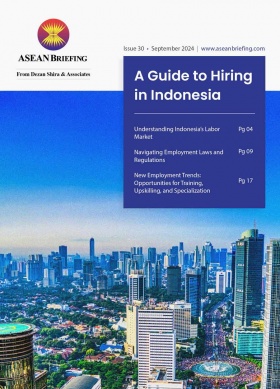Indonesia Joins BRICS: Unlocking New Economic Opportunities
In a pivotal move to bolster its economic ambitions, Indonesia has joined the BRICS economic alliance, positioning itself alongside emerging powerhouses like Brazil, Russia, India, China, and South Africa. This development coincides with President Prabowo Subianto’s ambitious target of achieving 8% GDP growth—a goal that would place Indonesia among the world’s fastest-growing economies. As Jakarta aligns itself with BRICS Plus, the expanded bloc, this membership reflects a strategic push to unlock new economic opportunities, attract investment, and strengthen its global influence.
Indonesia’s participation in BRICS is not only about geopolitics; it is also about ensuring the structural reforms and partnerships necessary to fuel its ambitious growth agenda. This article explores how BRICS membership can help Indonesia achieve its economic objectives while navigating the challenges associated with its lofty growth target.
What is BRICS?
BRICS was formed in 2009 as a coalition of emerging economies aiming to reshape global governance and challenge the dominance of Western-led institutions. Over the years, the group has expanded its role, with the recent inclusion of Egypt, Ethiopia, Iran, Saudi Arabia, and the UAE under BRICS Plus, significantly enhancing its economic footprint.
Key facts about BRICS Plus:
- Trade Volume: BRICS Plus accounts for approximately 24% of global trade.
- Economic Significance: The bloc represents 28% of the world’s GDP, making it a critical force in global economic dynamics.
- Global Partnerships: By 2022, BRICS Plus had become the main trade partner for 28% of countries worldwide.
Indonesia’s entry into BRICS strengthens its position in this influential bloc, offering a platform to engage in multilateral trade, infrastructure financing, and technological collaboration—all of which are vital to achieving its 8% GDP growth target.
Why did Indonesia join BRICS?
Strengthening economic partnerships
President Prabowo’s administration recognizes that sustained economic growth requires diversified trade partnerships and increased foreign investment. BRICS membership provides Indonesia with access to markets in Asia, Africa, and Latin America, aligning with its strategy to expand non-traditional trade relationships.
Infrastructure and financing opportunities
Massive infrastructure investment is a key enabler of Indonesia’s growth target, as emphasized by the East Asia Forum. Membership in BRICS opens avenues for accessing low-cost financing through the New Development Bank (NDB), which has prioritized infrastructure development among member nations.
Advocating for the global south
BRICS serves as a platform for Indonesia to champion the interests of the Global South. By collaborating with other emerging economies, Jakarta aims to influence global policies that support sustainable growth, fair trade practices, and access to technology—critical elements in achieving its ambitious growth goals.
Attracting investment
With BRICS Plus representing nearly a third of global GDP, membership enhances Indonesia’s attractiveness as an investment destination. By leveraging partnerships within the bloc, Indonesia can stimulate sectors such as energy, manufacturing, and technology, which are essential drivers of GDP growth.
Indonesia’s trade dynamics with BRICS
Trade volume and growth potential
In 2024, Indonesia’s trade with BRICS nations reached approximately $150 billion, reflecting the bloc’s importance as a trading partner. Expanding this trade is critical to achieving the export growth required for the 8% GDP target.
Key exports
Indonesia’s primary exports to BRICS countries include:
- Palm Oil: A major commodity for markets like India and China.
- Coal and Natural Gas: Supporting energy security in BRICS economies.
- Rubber: Vital for industrial and automotive applications.
Key imports
Indonesia relies on BRICS for:
- Machinery and Electronics: To support its industrialization efforts.
- Chemicals: For its growing agricultural and manufacturing sectors.
Linking BRICS membership to Indonesia’s growth ambitions
Infrastructure development
Indonesia’s ambitious growth target hinges on large-scale infrastructure projects, including new roads, ports, and railways. As Bloomberg highlights, achieving 8% GDP growth requires unprecedented investment in infrastructure. BRICS offers financing options through the NDB and partnerships with countries like China, which has significant expertise in infrastructure development.
Technology transfer and industrial growth
Membership in BRICS positions Indonesia to benefit from technological cooperation with member states. Collaborative initiatives in renewable energy, artificial intelligence, and digitalization could help modernize Indonesia’s industries, enhancing productivity and competitiveness.
Trade diversification
Expanding trade within BRICS Plus allows Indonesia to reduce its reliance on traditional markets like the U.S. and the EU. This diversification aligns with The Diplomat’s observation that Indonesia must broaden its export base to sustain long-term growth.
BRICS membership as a catalyst for growth
Indonesia’s entry into BRICS is a strategic move to advance its ambitious goal of achieving 8% GDP growth. By leveraging the economic opportunities and partnerships offered by BRICS, Indonesia can accelerate its development agenda, diversify trade, and attract vital investment.
However, success will depend on Jakarta’s ability to implement structural reforms, navigate geopolitical complexities, and ensure that its BRICS membership translates into real economic gains. As Indonesia embarks on this transformative journey, its active participation in BRICS will be instrumental in shaping its economic future while contributing to the bloc’s vision of a more equitable global order.
About Us
ASEAN Briefing is one of five regional publications under the Asia Briefing brand. It is supported by Dezan Shira & Associates, a pan-Asia, multi-disciplinary professional services firm that assists foreign investors throughout Asia, including through offices in Jakarta, Indonesia; Singapore; Hanoi, Ho Chi Minh City, and Da Nang in Vietnam; besides our practices in China, Hong Kong SAR, India, Italy, Germany, and USA. We also have partner firms in Malaysia, Bangladesh, the Philippines, Thailand, and Australia.
Please contact us at asean@dezshira.com or visit our website at www.dezshira.com and for a complimentary subscription to ASEAN Briefing’s content products, please click here.







